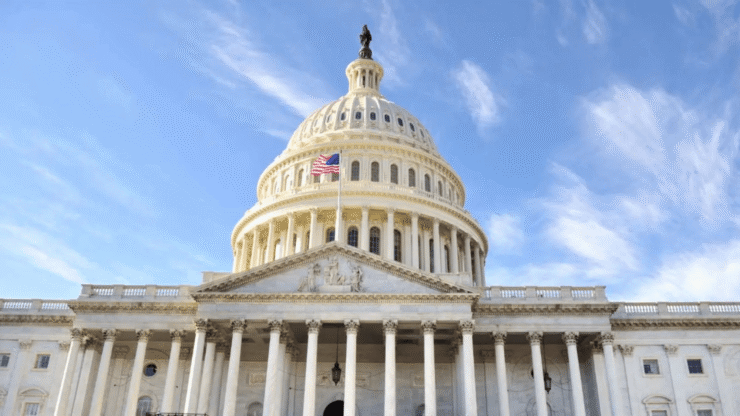A congressional hearing intended to advance digital asset legislation unraveled into chaos on Tuesday, as House Democrats walked out in protest, citing President Donald Trump’s crypto holdings as a massive conflict of interest. The disruption marks a sharp escalation in partisan tensions and may derail the path of several high-profile crypto bills.
The scene unfolded during a joint hearing of the House Financial Services Committee and the Agriculture Committee. Democratic leadership, led by Ranking Member Maxine Waters (D-CA), immediately objected to the hearing’s proceedings. Minutes in, Rep. Stephen Lynch (D-MA) triggered a shouting match after alleging Trump’s crypto-related earnings amount to $2.9 billion—nearly 40% of his net worth.
“President Trump’s crypto dealings are estimated to be a total of $2.9 billion and nearly 40% of his total wealth!” Lynch declared.
His remarks were met with repeated gaveling from Rep. Bryan Steil (R-WI), who shouted, “The gentleman is no longer recognized!”
The heated exchange ended with Democratic members storming out of the room, sending a sharp message: unless Republicans agree to address what they call “crypto corruption,” bipartisan collaboration on digital asset regulation—including the GENIUS Act—could collapse entirely.
Waters Demands Ethics Clause in Crypto Legislation
Speaking to reporters after the walkout, Rep. Maxine Waters said Democrats want ethics safeguards added to pending crypto legislation, especially stablecoin-related bills. The amendments would bar sitting presidents from owning or promoting crypto companies while in office—rules aimed squarely at Trump’s ongoing ventures.
“We came close to getting a stablecoin bill,” Waters said,
“but Trump has been so outrageously brazen with his ownership of a crypto company… coaxing investors by bringing them to the White House. It’s just too much.”
Last month, Democrats introduced amendments designed to curb potential conflicts of interest involving presidents and digital assets. All were rejected by the Republican-led committee.
The controversy intensified after Trump announced a private dinner at his golf club for the top 220 holders of his meme coin, $TRUMP. The top 25 are promised a private White House tour—a perk that critics argue crosses ethical lines by converting crypto investment into privileged access to government spaces.
With corporate buyers now acquiring large positions in the token, Democrats warn the campaign risks turning into a pay-to-play scheme and argue that ethical guardrails are urgently needed.
Market Structure Hearing Derailed by Partisan Divide
Tuesday’s hearing was originally scheduled to introduce the House’s updated market structure bill, a sweeping proposal to realign crypto oversight—primarily by shifting authority away from the Securities and Exchange Commission (SEC). But after the walkout, the session lost its legislative focus and proceeded as a Republican-led roundtable discussion.
Greg Tusar, head of institutional product at Coinbase, endorsed the draft, calling it “a strong step” toward clearer rules for the industry. Other panelists included former regulators and blockchain executives, who discussed the bill’s practical implications.
Yet without bipartisan participation, the hearing’s credibility took a hit. The bill’s future remains uncertain, now clouded by political fallout surrounding Trump’s crypto ventures.
Quick Facts
- House Democrats walked out of a crypto regulation hearing over concerns about President Trump’s involvement in digital assets.
- Democrats are demanding ethics clauses to bar sitting presidents from profiting from industries they regulate.
- Trump’s $TRUMP meme coin and a family-run stablecoin are at the center of the controversy.
- The disruption raises doubts about bipartisan progress on key crypto legislation, including the GENIUS Act.





